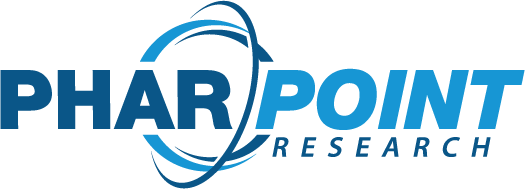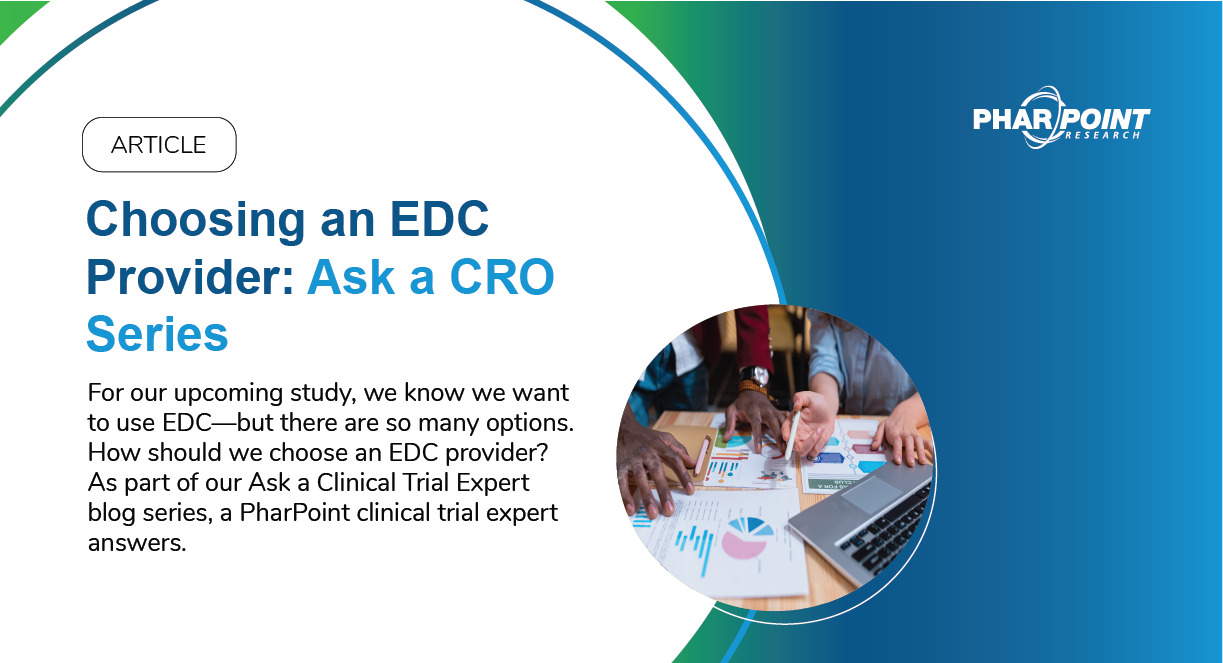“For our upcoming study, we know we want to use EDC—but there are so many options.”
How should we go about choosing an EDC provider?
Choosing an EDC provider for an upcoming study can seem daunting, with numerous options in the market.
Typically, multiple EDC providers are fully capable of meeting the needs of a particular study. In order to narrow your choices, you will want to consider costs, timelines, available features of each EDC system and the resources needed to support the study design with the EDC system:
- Do you have programming support for the system internally?
- Will you need to outsource the service, or can the EDC provider develop the study database for you?
Be sure to consider all of the stakeholders and functional areas in your decision making process. Use the questions below to get started.
1. What are the specifications for this study?
Consider the study design (phase, SAD, MAD, DDI, Cohorts etc.), number of subjects, number of sites and their geographical locations, the expected number of case report forms (CRFs), duration and other specifics such as the need for safety alerts and vendor data uploads to the system for your study.
These specifications will drive costs as well as guide your thinking about what features you will need from a provider.
2. What timelines are in place?
Some EDC systems take longer than others to get up and running.
If you’re short on implementation time, you will want to choose a provider that can work within your deadlines. Keep in mind that more robust and configurable systems take longer to set up. Remember to also consider your study close out timelines.
3. What kind of training will need to be completed in order to use the EDC system?
If you decide to use a system that hasn’t been used previously, you may need to train various users. You should consider which project team members need to be trained, the roles of the users, the system functionality to be used by each role (i.e. entry rights, query resolution, read only, monitoring etc.) and who will be responsible for providing the training.
EDC training might also be an additional cost, so keep your budget in mind as well.
4. Will we need additional services such as interactive voice response systems (IVRS) or global help desk support?
Some EDC providers already have internal systems to handle IVRS or global help desk services. If sticking with one full-service provider is important to you, you could narrow your choices to multi-solution providers.
Alternatively, you could choose an EDC-only provider and contract additional providers to handle these services.
Cost, ease of implementation, integration abilities, and timelines are important factors to consider here.
Here at PharPoint, we work regularly with two different EDC providers (Medrio and Medidata), but have experience with 15+ providers and can easily work with whoever a sponsor chooses as their best fit. We can also help you with the process of choosing an EDC provider that will work best for your study.
Contact us today to discuss our data management services and how PharPoint can help you implement the right EDC solutions for your upcoming clinical trial.




